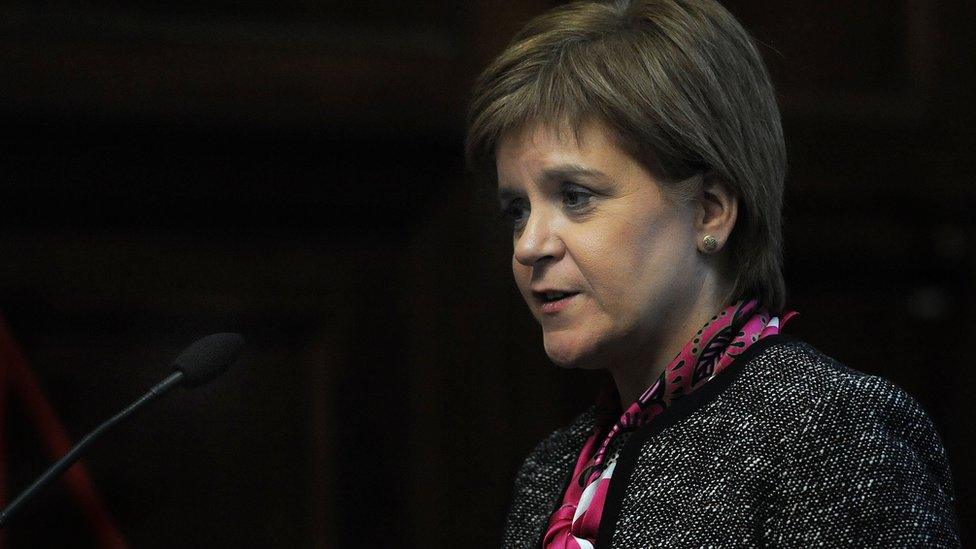Why Brexit ruling is a relief for the government
- Published
The BBC's Laura Kuenssberg sets out three key points from the ruling
"Phew", a government minister exhaled after this morning's court ruling.
Certainly, the prime minister did not want to find herself in the position of having to ask MPs for permission to start our divorce from the European Union.
Today's verdict from the justices doesn't take away from the reality that having to go to Parliament before triggering Article 50 is a political inconvenience Theresa May very much wanted to avoid.
Nor does it change the sentiment among opposition MPs, some of whom are determined to try to amend whatever legislation the government puts forward to include guarantees of this or that, to try to force a vote on staying in the single market, or to push for final binding votes on the process when negotiations are complete.
However, the sighs of relief are real in Whitehall this morning for two reasons.

Nicola Sturgeon wanted the Scottish government to be consulted before Article 50 was triggered
The justices held back from insisting that the devolved administrations would have a vote or a say on the process. That was, as described by a member of Team May, the "nightmare scenario".
The Scottish National Party has said it would not try to veto Brexit, but there is no question that having a vote on Article 50 in the Holyrood Parliament could have been politically troublesome for the government. After the judgement it seems like an unexploded bomb.
And second, the Supreme Court also held back from telling the government explicitly what it has to do next. The judgement is clear that it was not for the courts but for politicians to decide how to proceed next.
That means, possibly as early as tomorrow, ministers will put forward what is expected to be an extremely short piece of legislation in the hope of getting MPs to approve it, perhaps within a fortnight.
Attorney General Jeremy Wright: "The government will comply with the judgement of the court"
Nightmare number two for the government would have been explicit instructions from the court about the kind of legislation they had to introduce.
That wouldn't just have made ministers' lives very difficult when they want, above all else, to produce something that gives their opponents minimal room for manoeuvre.
But it would have raised spiky questions about the power of the courts versus our politicians and parliaments - a fight few had the appetite to have.